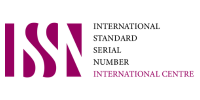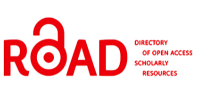ISSN: 3049-3277
Publication Ethics and Malpractice Statement
Publication Ethics and Malpractice Statement
The International Journal of Integrative Studies (IJIS) is committed to maintaining the highest standards of publication ethics and takes all possible measures against publication malpractice. Authors, reviewers, and editors are expected to adhere to the following ethical guidelines.
Duties of Authors:- Originality and Plagiarism: Authors must ensure that their work is original and free from plagiarism. Proper citation and acknowledgment of the work of others must be provided.
- Data Accuracy: Authors must present an accurate account of the work performed and an objective discussion of its significance. Fraudulent or knowingly inaccurate statements constitute unethical behavior.
- Multiple Submissions: Authors should not submit the same manuscript to more than one journal concurrently. Submitting the same paper to multiple journals is unethical and unacceptable.
- Acknowledgment of Sources: Proper acknowledgment of the work of others must be given. Authors should cite publications that have influenced their research.
- Authorship of the Paper: Authorship should be limited to those who have made a significant contribution to the study. All those who have made substantial contributions should be listed as co-authors. Others who have participated in certain substantive aspects of the research project should be acknowledged.
- Disclosure and Conflicts of Interest: Authors must disclose any financial or other substantive conflict of interest that might be construed to influence the results or interpretation of their manuscript. All sources of financial support for the project should be disclosed.
- Errors in Published Works: If the author discovers a significant error or inaccuracy in the published work, it is the author's obligation to promptly notify the journal editor or publisher and cooperate with them to retract or correct the paper.
Duties of Reviewers:
- Confidentiality: Reviewers must treat manuscripts received for review as confidential documents. They must not be shown to or discussed with others except as authorized by the editor.
- Acknowledgment of Sources: Reviewers should identify relevant published work that has not been cited by the authors. Any statement that an observation, derivation, or argument had been previously reported should be accompanied by the relevant citation.
- Standards of Objectivity: Reviews should be conducted objectively. Personal criticism of the author is inappropriate. Reviewers should express their views clearly with supporting arguments.
- Promptness: Reviewers should complete their reviews within the stipulated time frame. If a reviewer feels unqualified to review the research reported in a manuscript or knows that timely review will be impossible, they should notify the editor and excuse themselves from the review process.
- Conflict of Interest: Reviewers should not review manuscripts in which they have conflicts of interest resulting from competitive, collaborative, or other relationships or connections with any of the authors, companies, or institutions associated with the papers. Duties of Editors:
- Publication Decisions: The editor-in-chief is responsible for deciding which of the articles submitted to the journal should be published. The editor may confer with other editors or reviewers in making this decision.
- Fair Play: An editor should evaluate manuscripts for their intellectual content without regard to race, gender, sexual orientation, religious belief, ethnic origin, citizenship, or political philosophy of the authors.
- Confidentiality: The editor must not disclose any information about a submitted manuscript to anyone other than the corresponding author, reviewers, potential reviewers, other editorial advisers, and the publisher.
- Disclosure and Conflicts of Interest: Unpublished materials disclosed in a submitted manuscript must not be used in an editor's own research without the express written consent of the author.




